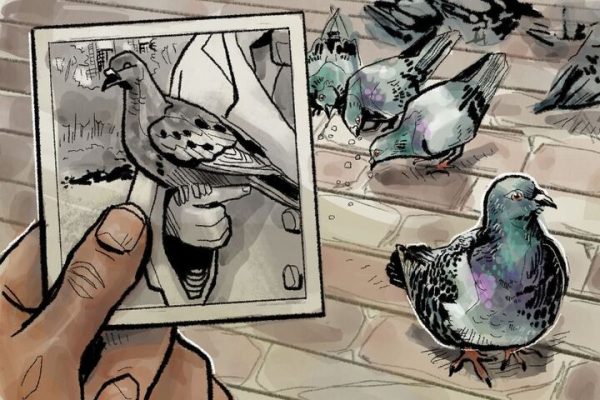OPINION: Students need more diverse study abroad options
Study abroad is a life-changing opportunity. Regardless of your major, a student should have multiple options to study overseas. It changes your perspective, teaches you how to communicate differently, gives you more independence, and is one prolonged exercise in problem-solving.
But study abroad is expensive. It requires a ton of planning ahead. And for students who change majors, transfer from another school, or need to work to pay tuition and student fees, there are limited options.
Traditionally, study abroad programs at American colleges and universities have prioritized sending students to Western European countries like France, Italy, and Great Britain. It’s time to shake things up and think outside the box.
Offering students more summer abroad options is one way to advance this cause. Another is to offer shorter sessions, four to six-week-long programs which can take place over summer or winter break. For one thing, these would cost less. Another reason to consider this is it allows students to personalize their travel.
If a student wants to study in South America, the Middle East, or Africa right now, their options are pretty limited. The burden is on them to make it possible. That doesn’t seem right at a university that’s looking to become a global powerhouse research institute.
There’s no shortage of universities overseas that would love to host American students. We need to strengthen ties with schools outside of Europe and Asia to offer students the full breadth of what the world offers. There’s no better time to get out there and do some globe-trotting.
Study abroad can change the trajectory of your life. It’s a gift that keeps on giving but everywhere you look, you see obstacles if you’re trying to go off the beaten path.
Now WSU has made a push to offer short-term summer programs, and this is precisely what I am talking about. Still, I am not sure if students who are interested in these are finding them. I don’t know of any such offerings in my program, and that’s a real shame. Imagine how much we could learn with a communication-based study abroad program.
When I was 16 years old, I participated in a travel-based term abroad program in Turkey. We spent nine weeks backpacking through the country. I learned about Ramadan from being there during the month of fasting. I learned about Muslim feminists. I learned about the Ottoman Empire. I learned how to live out of a backpack. I learned how to serve others through our volunteer work in rural schools — a partnership with Unicef. We spent a couple of weeks at an elite prep school in Ankara, traveled to some of the most gorgeous landscapes imaginable, and even hitchhiked on the back of chicken trucks in some very off-the-grid locations. We spent almost 20 days in Istanbul which is a glorious destination— I highly recommend it.
There were 11 students and two faculty members on the trip. Prior to the trip, we spent three weeks stateside learning about the locations we would visit — the history, politics, and religion. We traveled through about half the country, avoiding the far eastern section nearer the Syrian border. At each location, one of us would act as a tour guide, presenting the papers and research we had prepared on a person or place. It helped cut down on the number of books we had to carry with us as we had done a ton of our academic research before leaving the U.S.
While abroad, we kept journals that were graded. There were different questions to respond to each week. We also had interviews to conduct with locals and papers to write while traveling. It was a significant amount of work, but I learned a ton.
I was also lucky enough to do an exchange program many years ago to the small village of Montsegur, France. It was picture perfect. I spent three weeks there, and then my host returned to the U.S. with me and spent three weeks with my family. We both improved our language skills significantly and did lots of traveling.
I believe that the people who work in the Office of Study Abroad work hard for students and are open to new and innovative ideas. But it doesn’t change the fact that as a transfer undergraduate student and as a Graduate student, my opportunities to work and study abroad have been limited.
Organizing the Mandela Washington Fellowship Reciprocal Exchange to Sierra Leone has been a labor of love, especially during a pandemic. Many people think I’m crazy for re-planning that trip a fourth time for this coming summer after its postponement three times during the pandemic. But when I commit to something, I do my best to see it through. To say it’s been a lot of work is a massive understatement. But when else am I going to have an opportunity to work in Africa? It’s not an opportunity that comes every day.
I believe in diplomacy. I think we all benefit from stepping outside our comfort zone and taking on great big, bold adventures.
In coming years, I’d simply like to see students have more opportunities to do these types of travel and study programs regardless of what major or program of study they are in. It’s good for the university and our individual students to approach each other with insight and understanding. That doesn’t happen if we continue to do what we’ve always done. Every student who wants to study overseas should have these opportunities. It’s time to take the innovative spirit WSU promotes and apply it to study abroad.

Audrey Korte was a reporter and the opinion editor for The Sunflower. She hosted The Sunflower News Podcast.









